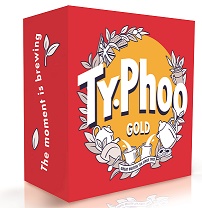Supreme, the Manchester-based firm that owns brands such as SCI-MX and 88Vape, has rescued Typhoo Tea from administration in a deal worth £10.2m.
 Typhoo Tea collapsed last week after a period of falling sales, widening losses, and rising debt.
Typhoo Tea collapsed last week after a period of falling sales, widening losses, and rising debt.
Supreme’s acquisition of Typhoo will see it taking on its stock and trade debtors with a book value of £7.5m. It noted that it does not expect the integration of the 121-year-old business to cause any disruption to existing operations or customer service levels, with it targeting a gross profit margin of around 30% on a much reduced overhead base.
Supreme, which also distributes batteries for the likes of Duracell and Energizer, has recently been growing its drinks and nutrition operations to reduce its focus on vaping before a government clampdown due next year. In June, Supreme acquired Acorn Topco, the parent company of Clearly, a manufacturer of spring water-based drinks.
The Typhoo deal will bring Supreme’s non-vape annualised sales to over £120m and widen its retail coverage, which is expected to generate additional sales opportunities across multiple product areas.
“I believe Typhoo Tea will thrive under our ownership, further benefitting from Supreme’s significant market reach and successful track record in creating brand loyalty, making us an ideal fit for this business,” said CEO Sandy Chadha.
“Having established our soft drinks division earlier in the year, we believe the addition of Typhoo Tea and its highly complementary blend of great value and premium tea brands, creates tangible cross-sell and product innovation opportunities in the near term, alongside avenues into credible UK retailers that Supreme has been looking to partner with.”
Typhoo had been trying to turn itself around since being taken over by investment firm Zetland Capital Partners in 2021. The firm has suffered from sluggish sales in recent years as consumers switched from traditional tea to herbal varieties and coffee.
Chadha noted that it was considering ways to grow Typhoo’s appeal with a younger generation of consumers.
“[Tea] is a £500m to £600m market, it’s still a huge industry even though it has reduced. [But] if you look at ice teas, that’s growing with a younger generation,” he said, adding that he had to look at alternatives “with the market declining”.
In the year ended 30 September 2023, Typhoo’s pre-tax losses increased from £8.5m to £38.0m on revenue down from £33.7m to £25.3m. It attributed the poor results to exceptional costs, which were partly related to one-off expenses from a transformation plan aimed at tackling “significant legacy and structural issues”. Typhoo also suffered a setback last year when trespassers caused extensive damage to its former factory in Moreton, Merseyside.
NAM Implications:
- So, it looks like…
- …potential synergies…
- …complementary footprints & brands…
- …and no compromising of service level.
- Fingers crossed…



